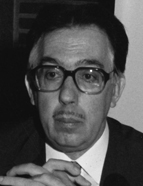

His scientifically grounded work on contemporary history sheds early light on an understudied period during the Estado Novo and Marcelismo. It is worth noting, borrowing the words of Hipólito de La Torre, that “on the historical knowledge of the First Republic, there is a before and after the work of Oliveira Marques” (Na Jubilação Universitária…, 2003, p. 101). From a silenced, proscribed, and distorted period of the Estado Novo, the First Republic moves to the forefront as a theme worthy of scientific, rigorous, well-grounded and objective study, redefining circumstances and political events while retrieving some of the major protagonists of Republican life.
Working in libraries and archives, in 1971, he published A Primeira República Portuguesa. Para uma visão estrutural [The Portuguese First Republic. Towards a Structural View] and shortly after, while leading a research team and as author, he published a more comprehensive reference work, História da Primeira República Portuguesa [History of the First Republic] (published between 1972-1979). At the same time, he continued to publish or supervise the publication of public and private documents, mostly epistolography, on this period, in close connection with the writing of biographies of leading figures of the Republic, such as Afonso Costa, Bernardim Ribeiro and Norton de Matos. The knowledge he gained as researcher enabled him to publish the Guia de História da 1ª República Portuguesa [Guide to the History of the First Portuguese Republic], in 1981, a collection of sources and studies, organised by themes, which became the compass for those studying this period. Simultaneously, since many Republicans were freemasons and Oliveira Marques had also joined this organisation (in 1973, he was a deputy Grand Master and Sovereign Grand Commander), he sought to disseminate the history of freemasonry, on which there was confusing or little to no knowledge. In 1975, he published A Maçonaria Portuguesa e o Estado Novo [The Portuguese Freemasonry and the Estado Novo] and in the 1980s several of his studies, mainly on freemasons, were compiled in Ensaios de Maçonaria (1988) [Essays on Freemasonry], two volumes of Dicionário da Maçonaria Portuguesa (1986) [Dictionary of Portuguese Freemasonry] were published, “a summary of linguistic, ritualistic, philosophical and mainly historical, political and social knowledge, both in Portugal and the colonies, as well as in all those countries … where there were lodges under or related to the Portuguese freemasonry” as stated by Ferrer Benimeli (Na Jubilação Universitária…, 2003,p. 138).
